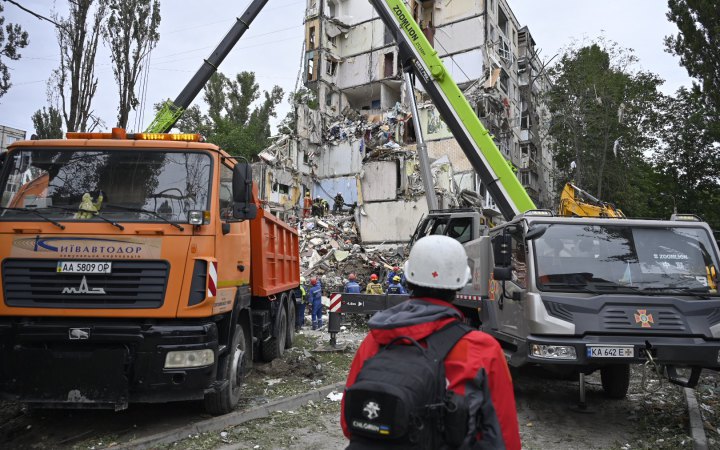On the way, as I approach the damaged building, I hear the crunch of glass underfoot. It has scattered across an area of at least 500 metres from the point of impact and is seriously hampering access for emergency vehicles. To clear the way for psychologists and volunteers, street cleaners are quickly sweeping up the glass, mixed with shards of brick, window frames and tree branches, from the pavements.
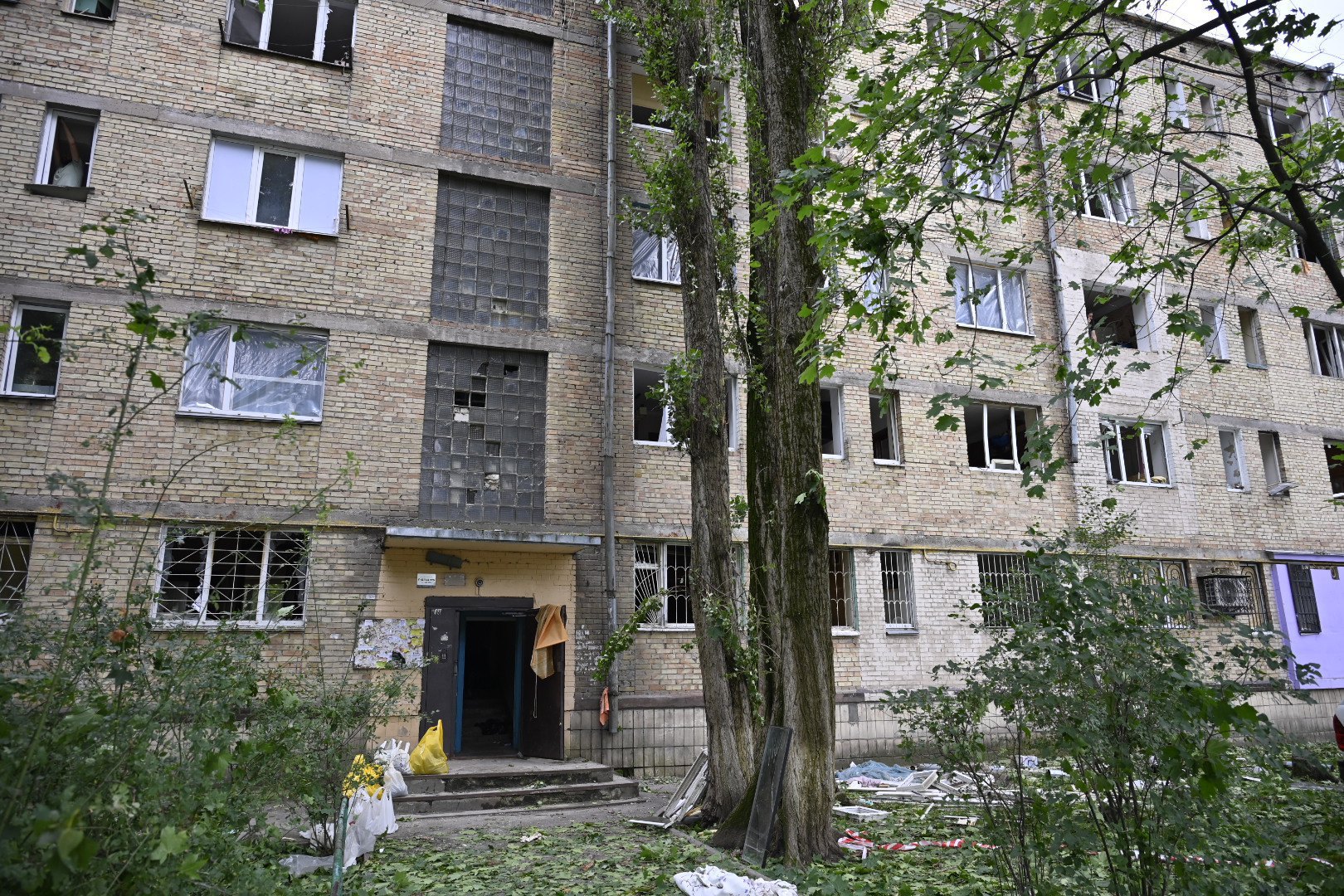
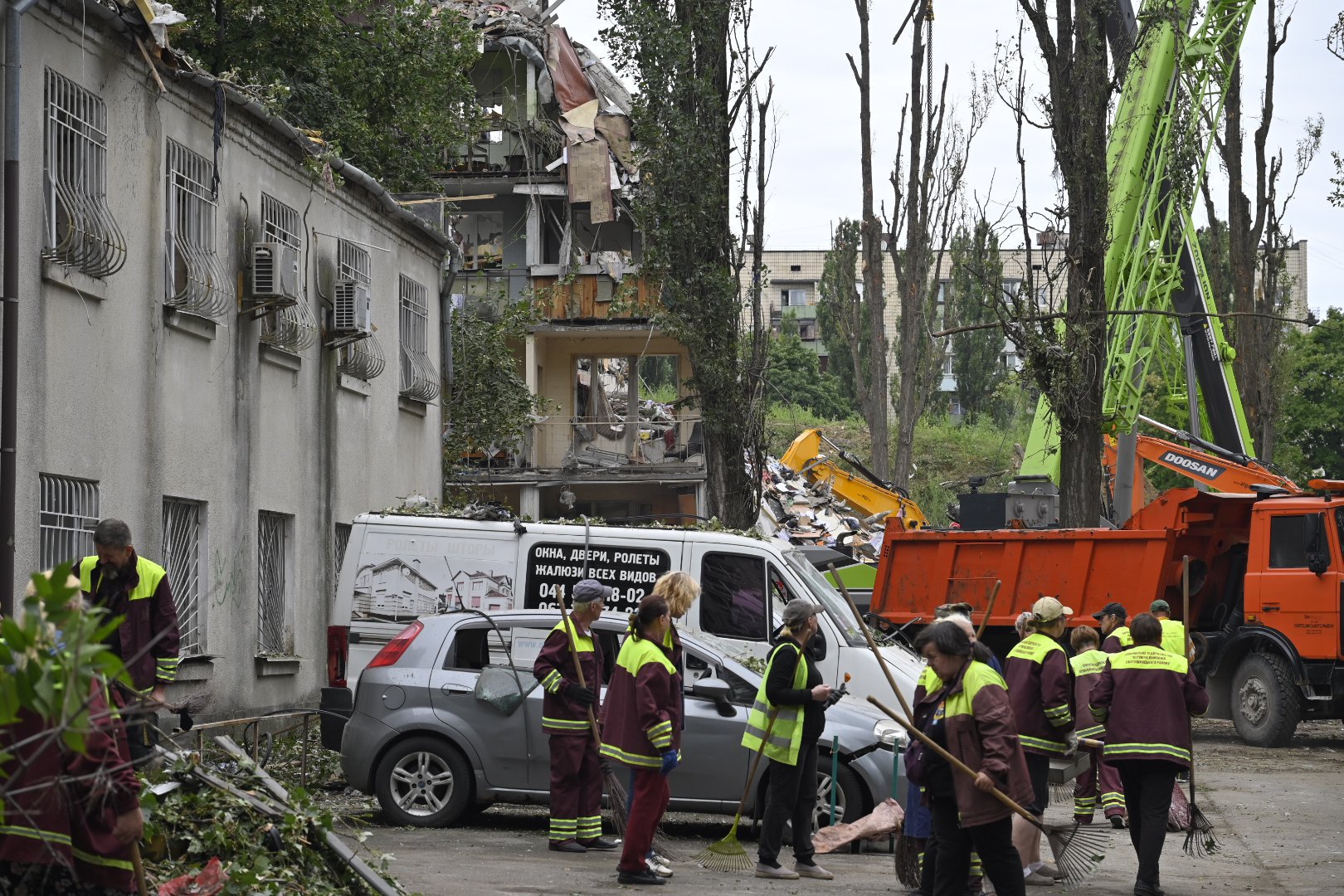
All around are police officers. It’s impossible to cross the cordon — rescue workers are at work there. I approach and notice a woman with a young boy standing near a neighbouring building inside the courtyard. She is trembling and crying.
Before saying a word, we hug. Instinctively, without a word. That’s just how things are now. What follows is a story I couldn’t bring myself to believe all day.
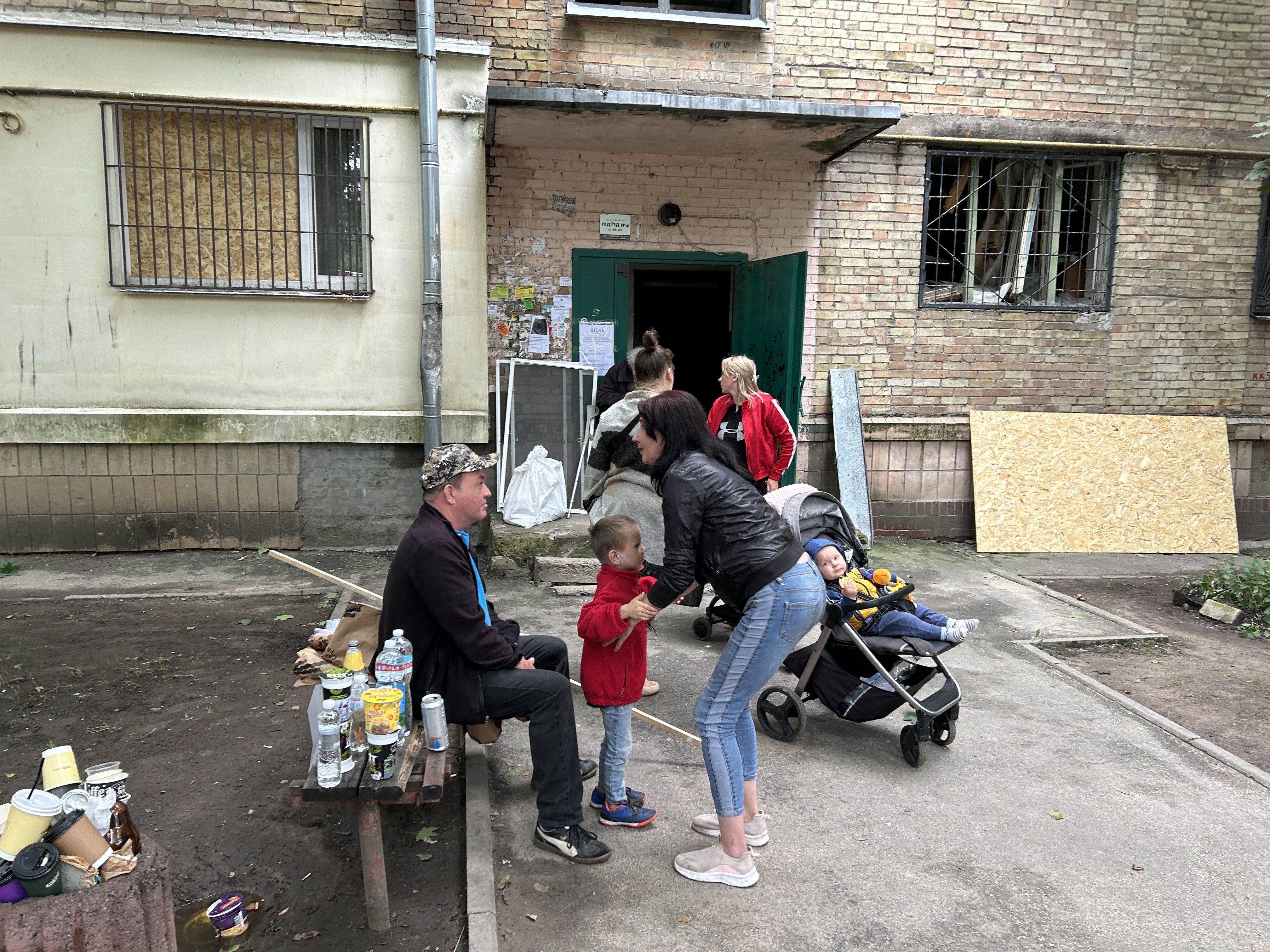
‘I live in the building next door, just there,’ she says, pointing at a flat with shattered windows. ‘I hadn’t slept all night, so I reacted immediately to the blast. The glass flew out — my legs were cut up a bit, but it’s nothing… The worst thing is the people in that destroyed building. Three people I knew were pulled out dead... And I saw with my own eyes a girl jump out of a ninth — I think ninth — floor window,’ says Ms Olena, wiping away tears.
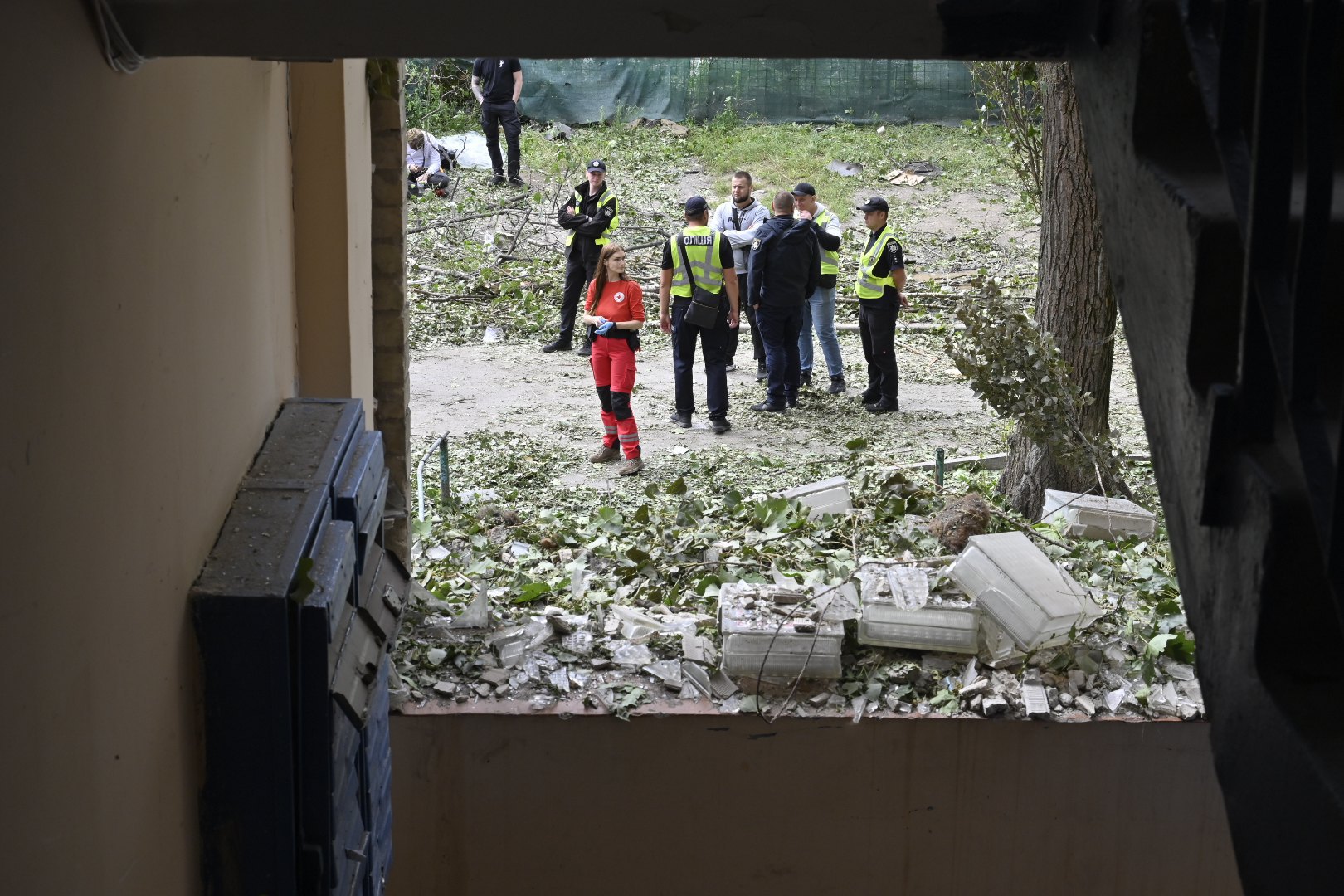
The woman immediately called for paramedics to come to the site of the strike. She complains that they took a long time to arrive, but then corrects herself — saying that theirs isn’t the only tragedy; there’s suffering everywhere. She has no idea what became of the girl who jumped from the still partially standing block.
As it later turned out, the boy Ms Olena was holding by the hand wasn’t her own — he belonged to a neighbour who had stepped away to file a claim for compensation following the Russian strike.
‘There are no such things as other people’s children here. Especially not now,’ she adds, before going to comfort a friend who also lives nearby.
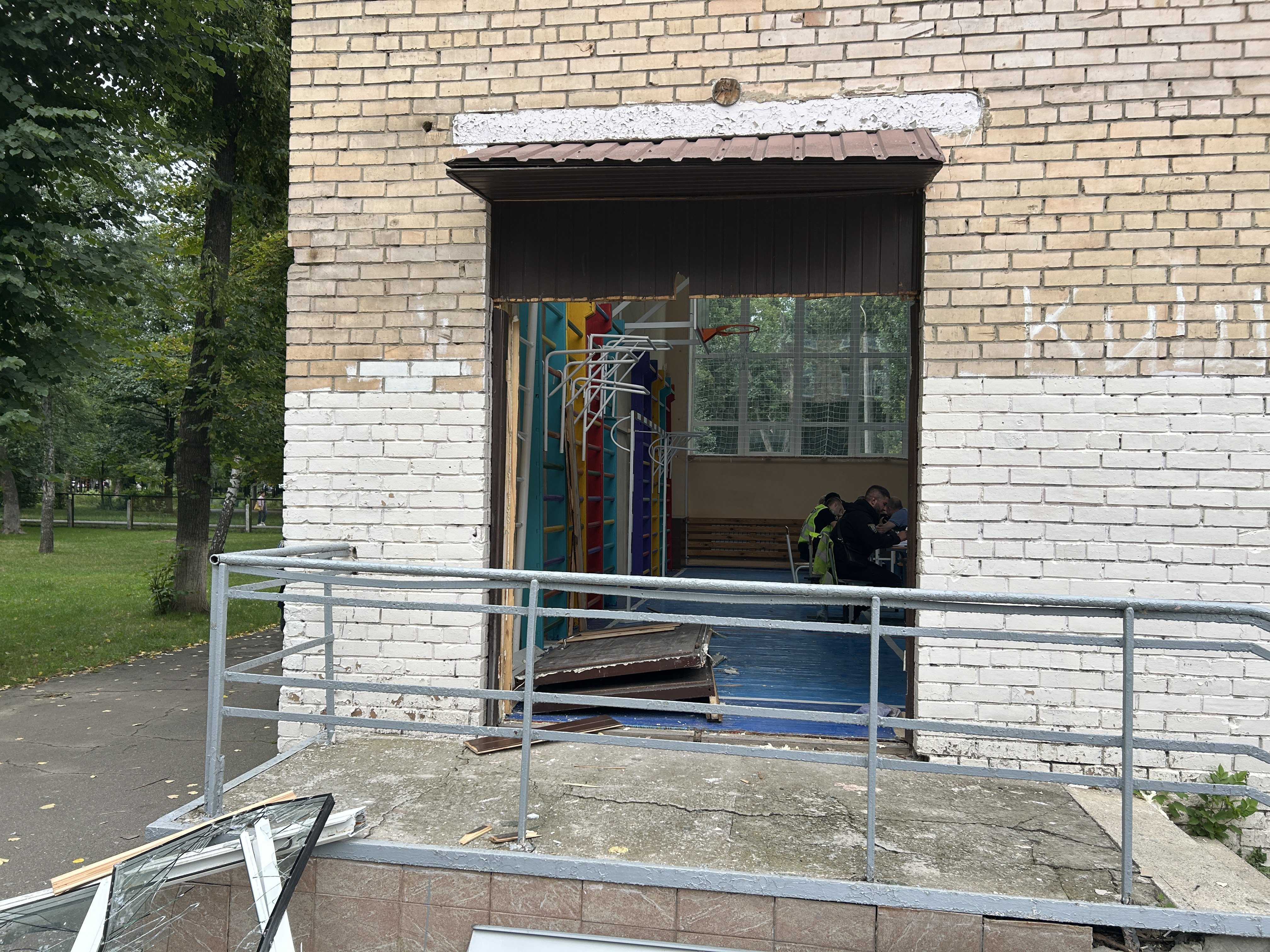
We make our way to the nearest school, where a relief centre has been set up. Red Cross volunteers are feeding people and offering fragrant coffee. Police officers are helping residents file compensation claims. At the same time, medics and psychologists are working with the injured and traumatised. In the school gym — accessible even from the courtyard, through a gaping hole where the door used to be — residents from the affected block have gathered. They’re trying to secure funds to replace the windows blown out by the blast wave.
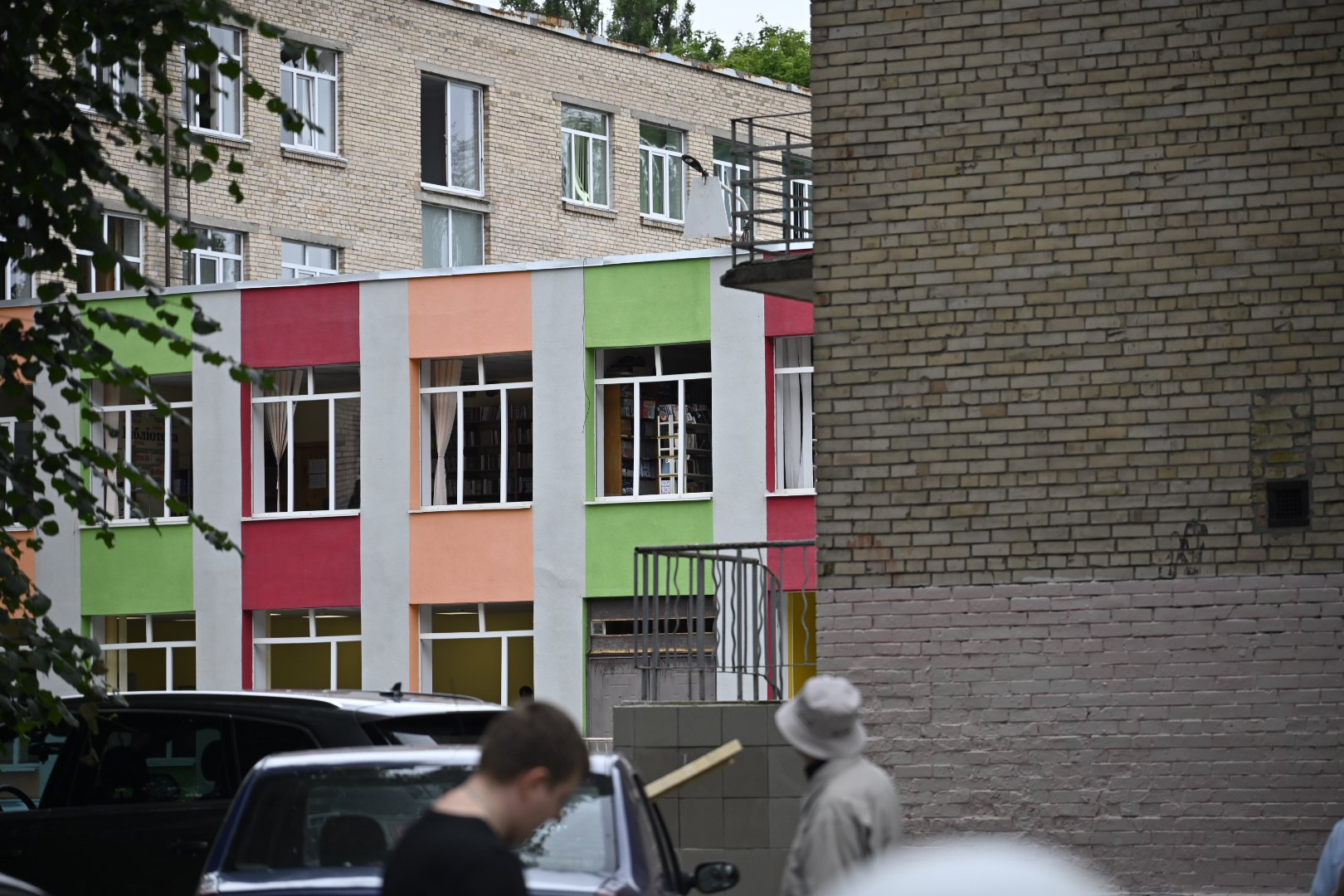
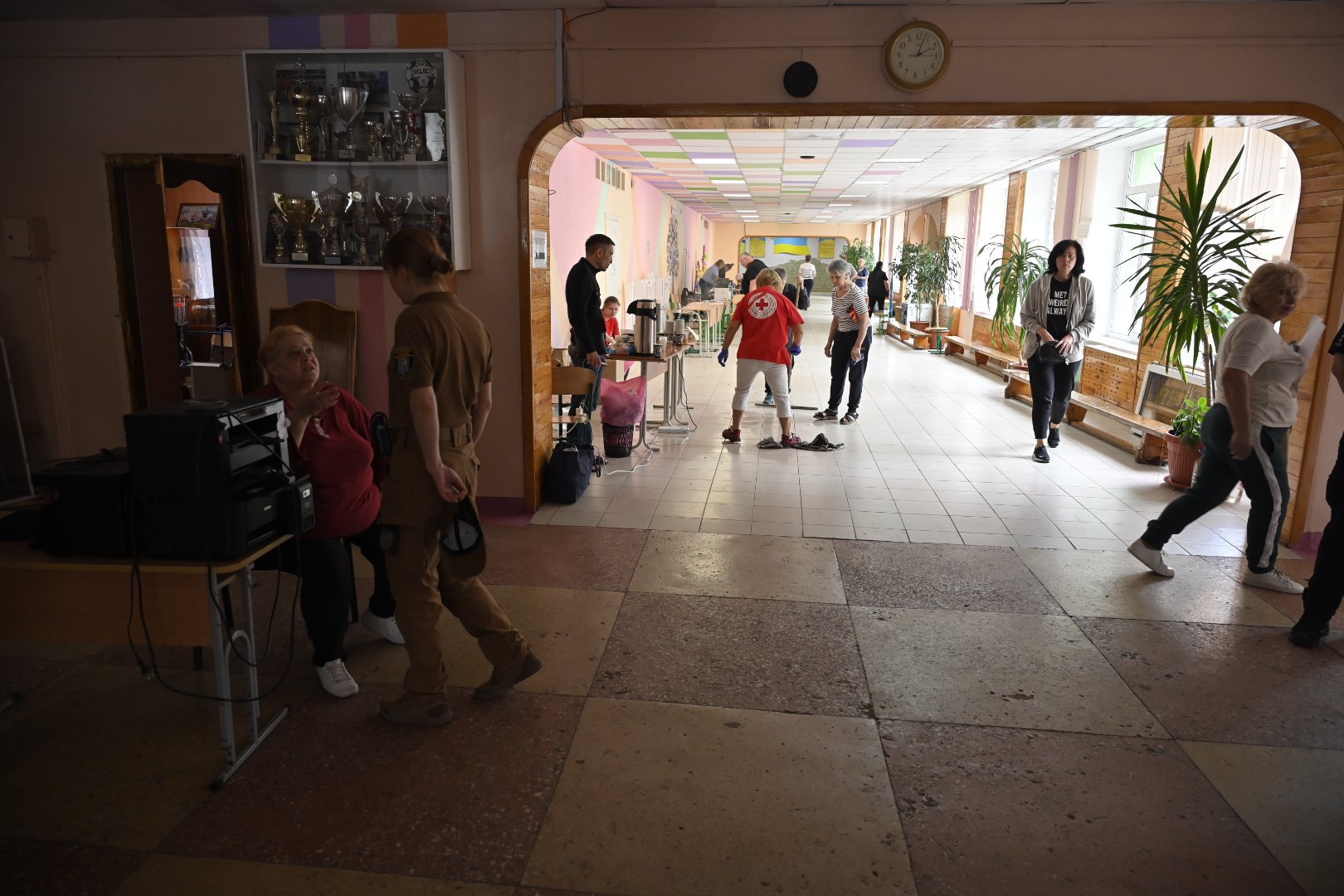
From outside comes the wail of another air-raid siren — a MiG-31K is in the sky. A frightened, anxious crowd heads for the shelter — a damp, stifling basement. People fear another strike. They know the Russians’ tactics by now: hit once, wait, then strike again to take out rescue workers.
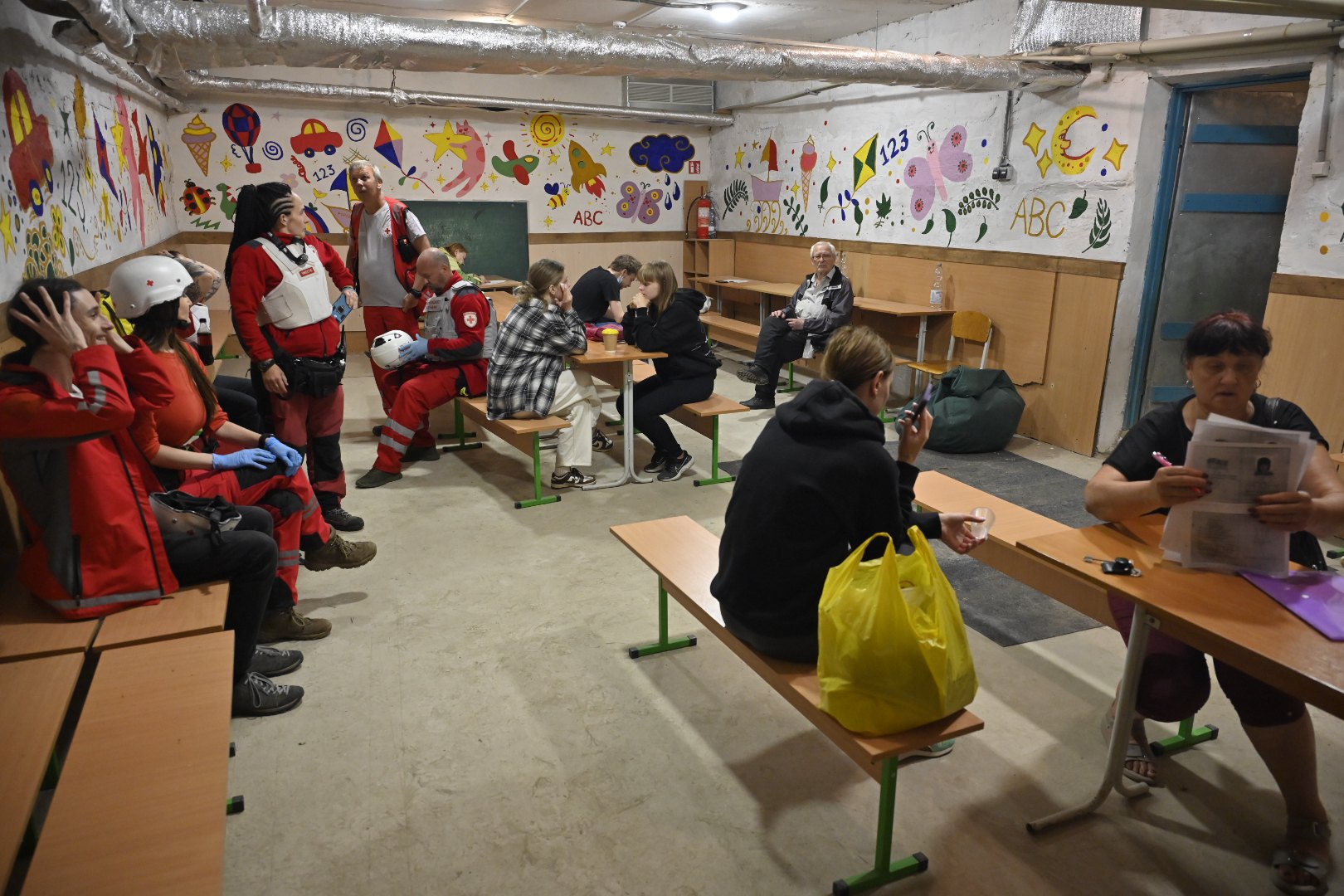
Fortunately, the alert didn’t last long.
We start asking around about the girl who jumped. None of the officers has heard anything. Locals say it’s just 'neighbourhood tales.'
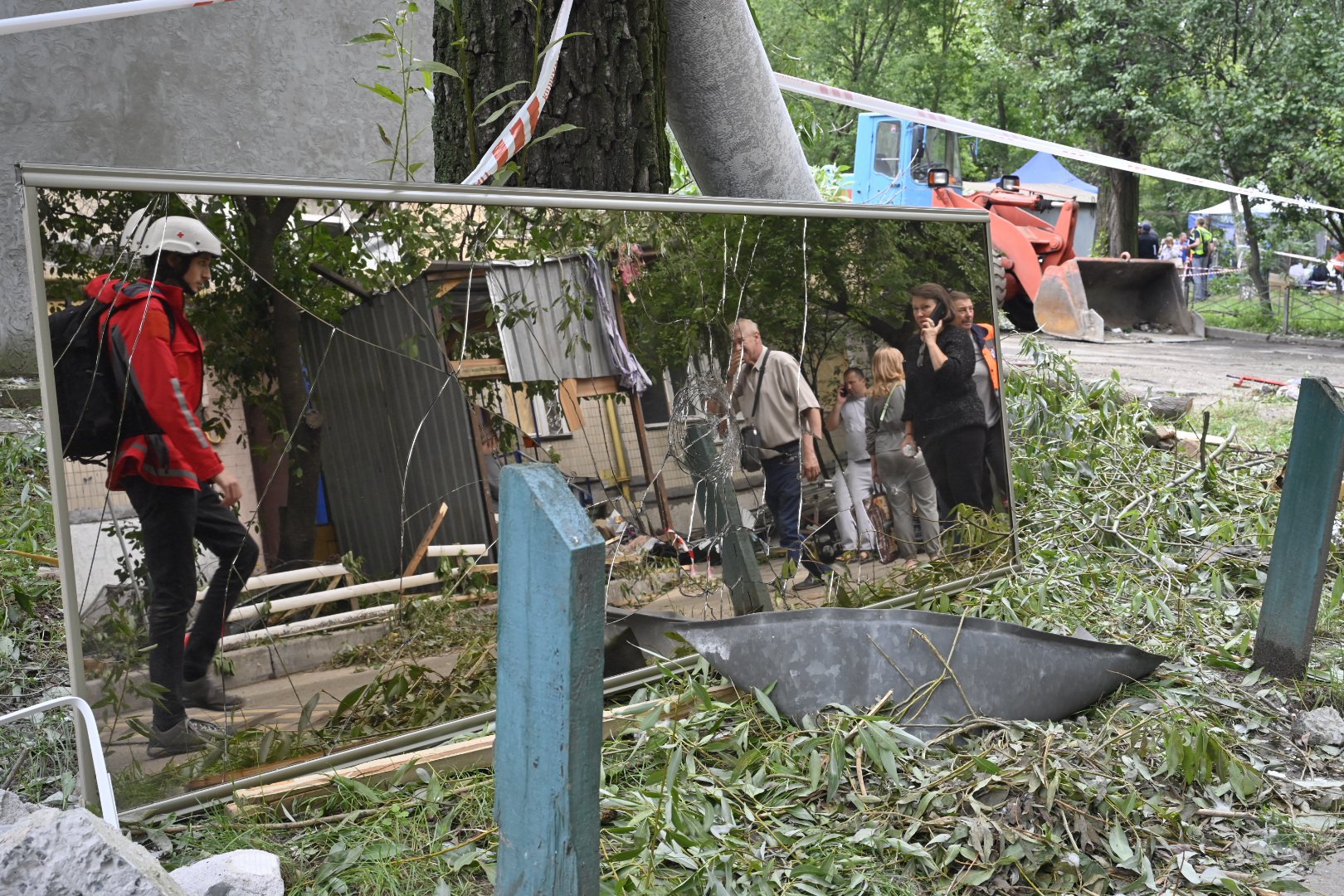
On our way back from the school, we spot a young man standing motionless, gripping a cup of coffee.
‘I was in the next entrance. That’s my building… Sorry, I can’t say much. I still haven’t wrapped my head around what happened. I’m alive — not a scratch on me. Thank God,’ he whispers, not giving his name.
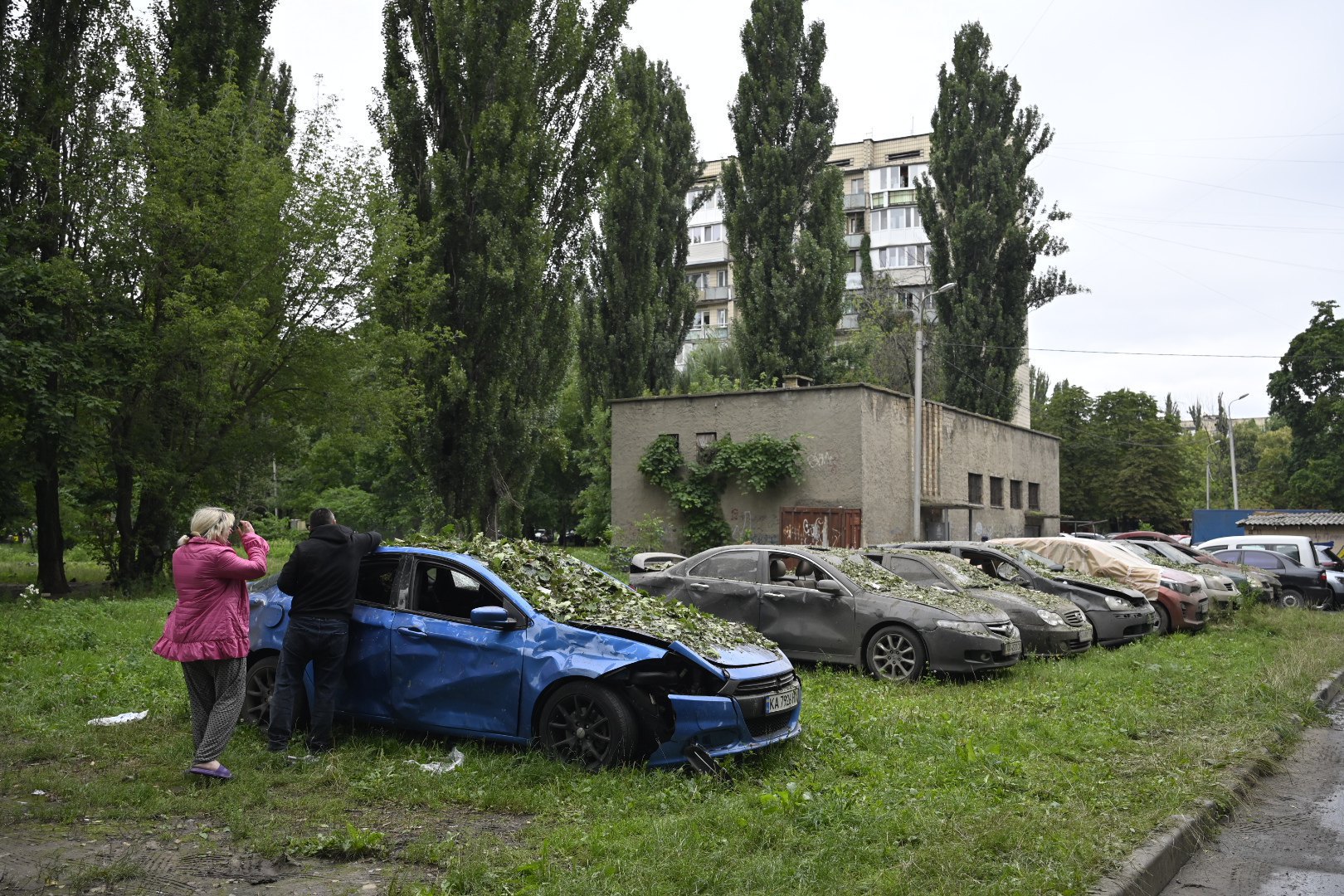
Nearby, three women stand silently in the same spot, occasionally whispering among themselves. One of them keeps making phone calls, sighing heavily after each.
‘Our friends are in there… Three of them. None of them is picking up, their phones are off. That’s never a good sign — but we’ll keep hoping,’ one of them says quietly. They haven’t heard anything about the girl either and didn’t believe us.
The heavy atmosphere is intensified by the clatter of debris being cleared from where the entrance used to be. The search continues.
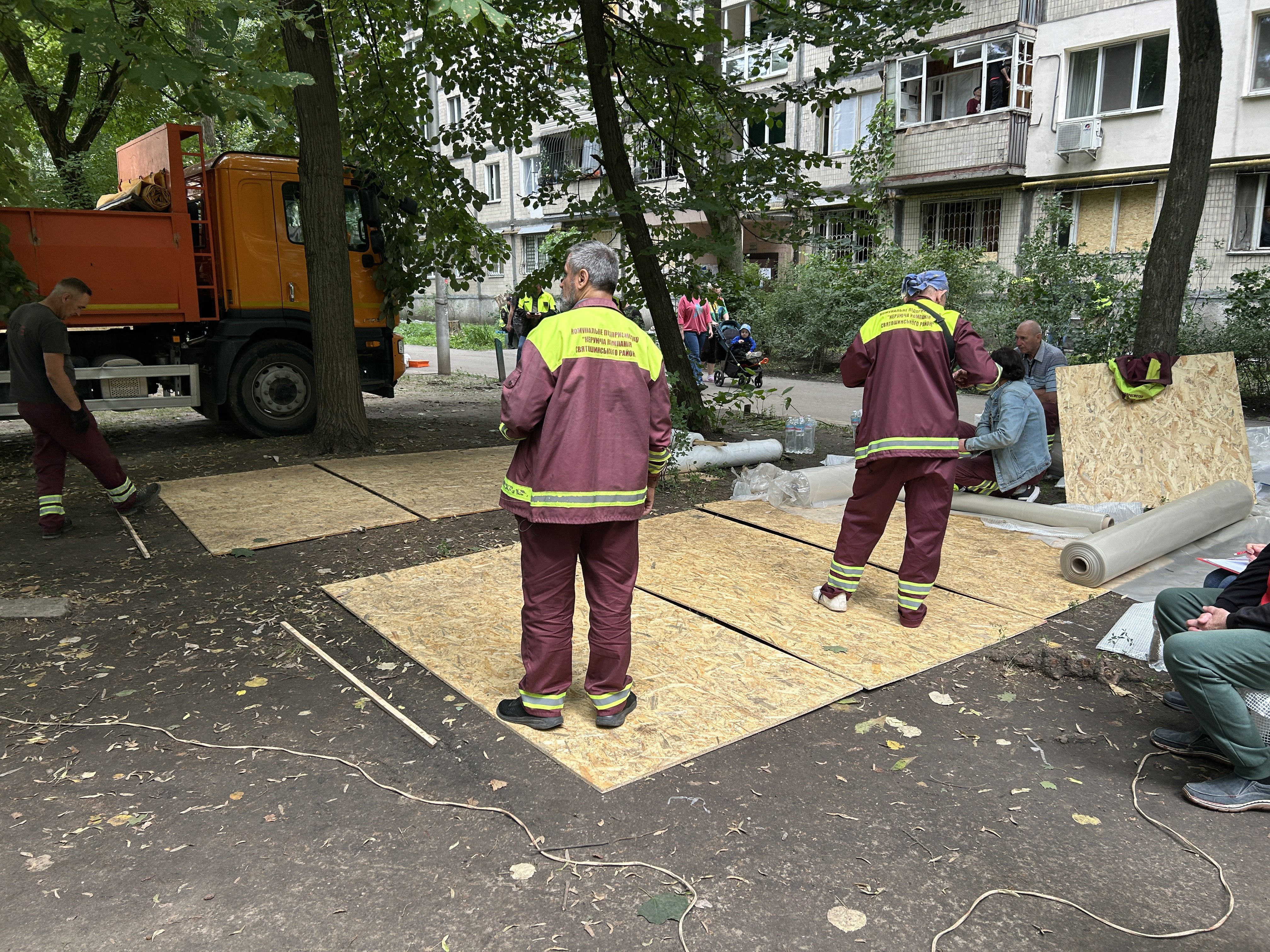
A group of men are unloading OSB boards, working like a conveyor belt. While some carry the panels, others are cutting them into rectangles to cover the shattered windows. Local residents queue silently — no pushing, no complaints.
Some 150 metres away, a black cat prowls. Its eyes are wide with fear after the traumatic night. No one pays attention to it, nor to the superstition about black cats bringing bad luck. Everyone knows who truly brings misfortune to this world…
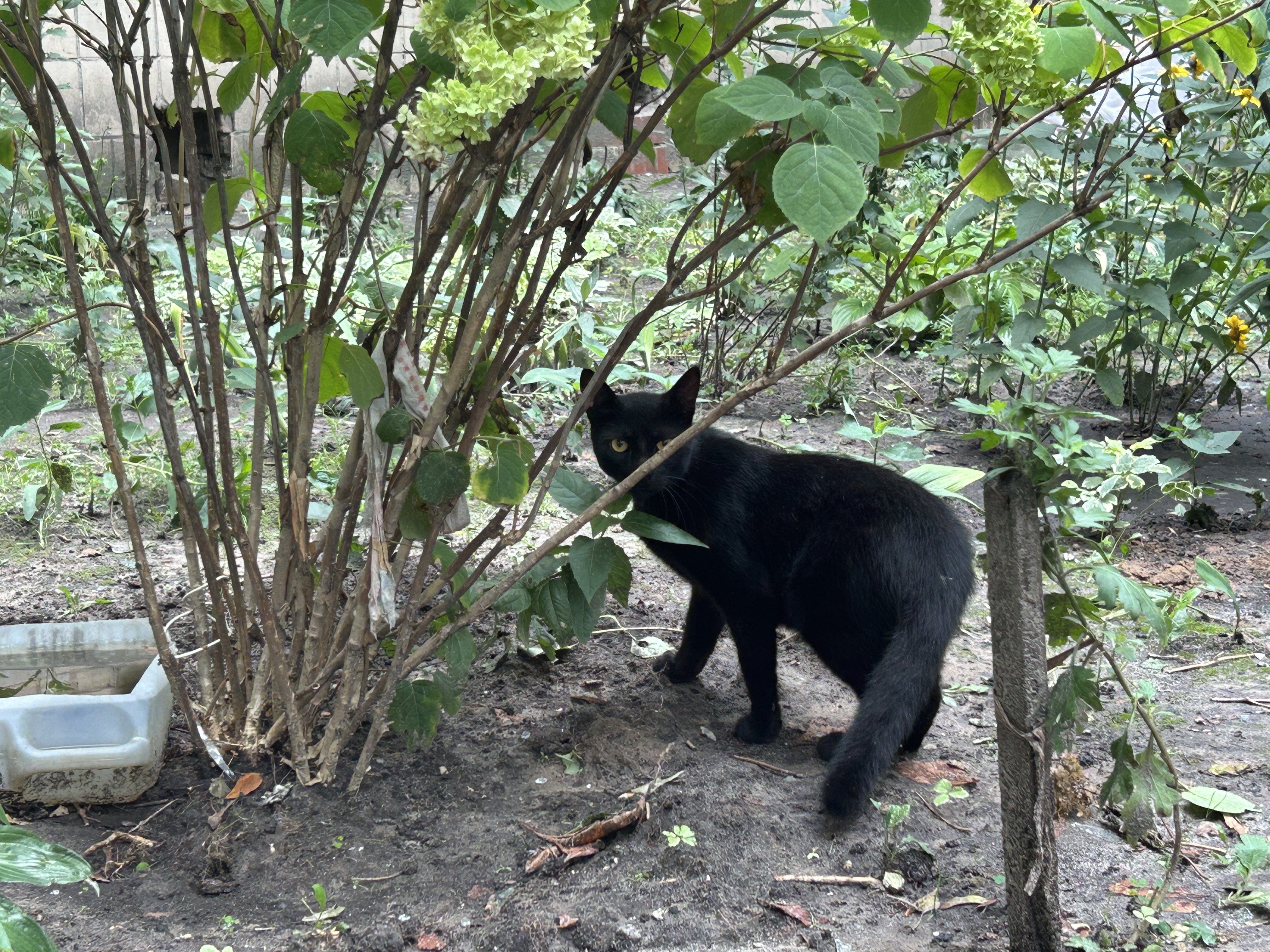
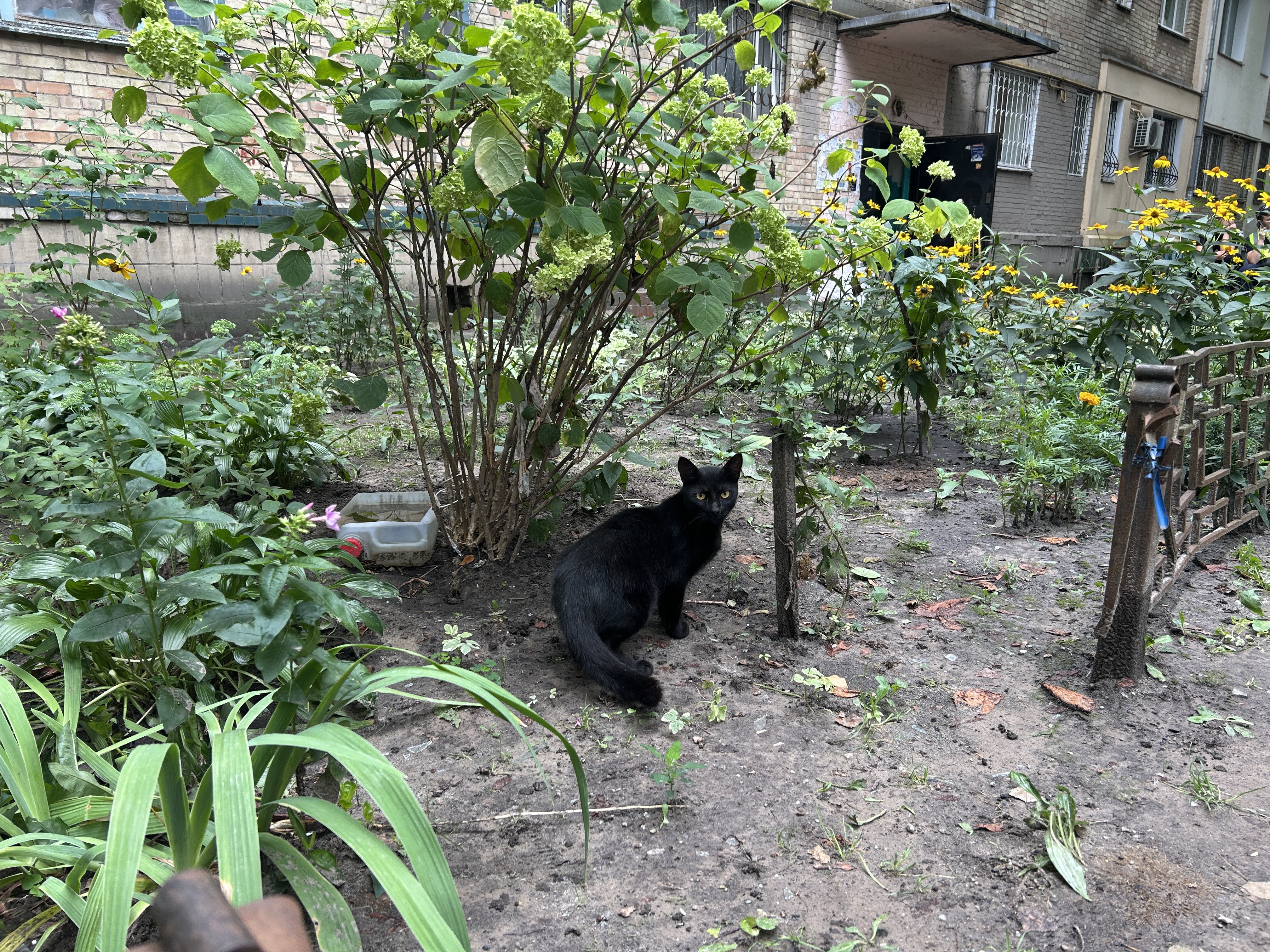
Dozens of civilians, rescuers, medics, and police officers — we speak to everyone, but no one can confirm Olena’s story about the girl who jumped from the window.
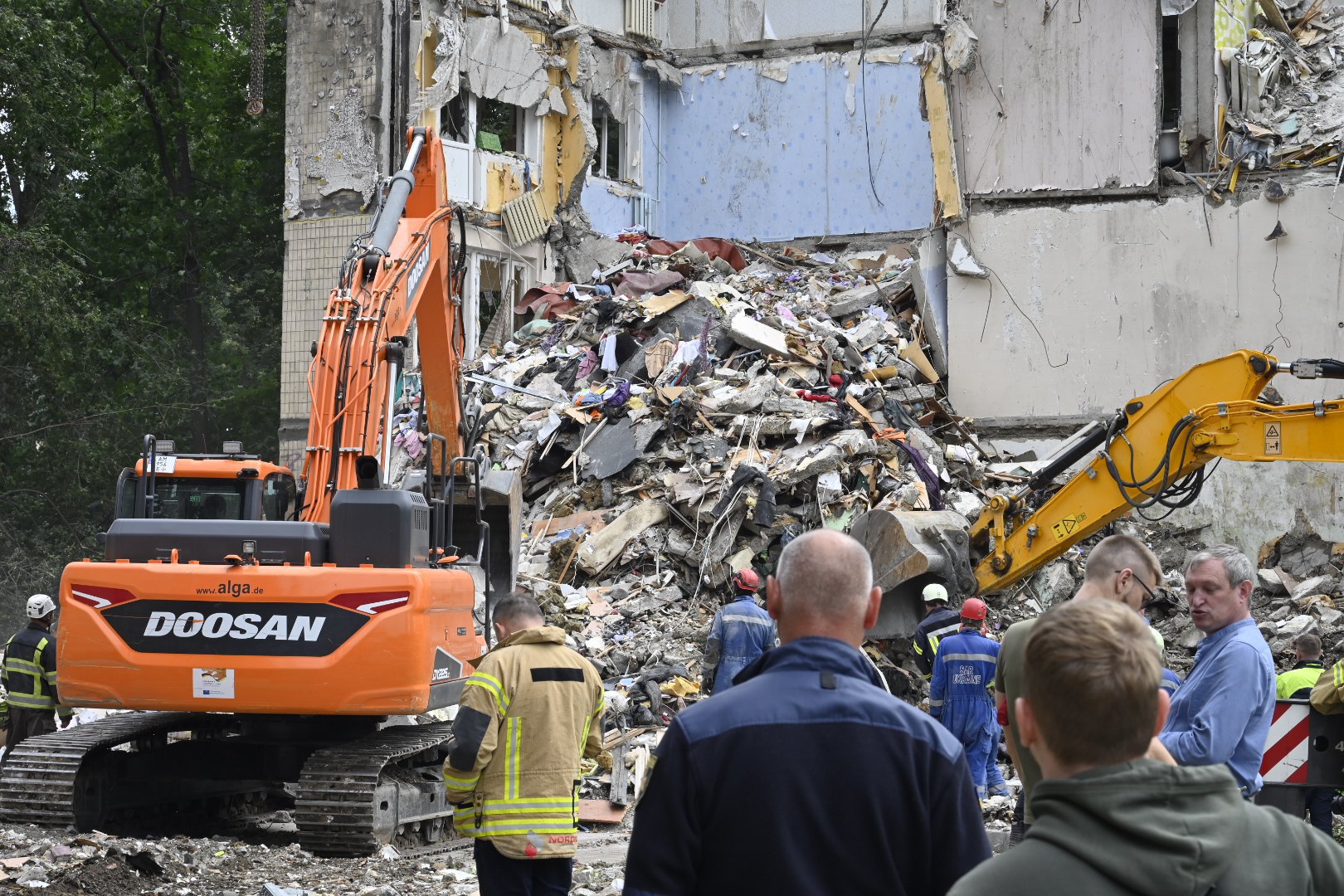
After four hours at the scene, it’s hard to breathe — the air is thick with dust, and our eyes sting. We spot another girl holding a dog in her arms. Her name is Svitlana. She also lives nearby. Her story is much like the others: the windows are gone, she was terrified, but thankfully she’s alive. The dog, however, lies still in her arms.
‘I was asleep when it happened. My little one got so scared he froze like a toy. See? I’m holding him — he’s just starting to come round. I moved here from the Solomyanskyy district to find a bit of peace… Silly me. There’ll be no peace while the Russians are alive,’ says Svitlana.
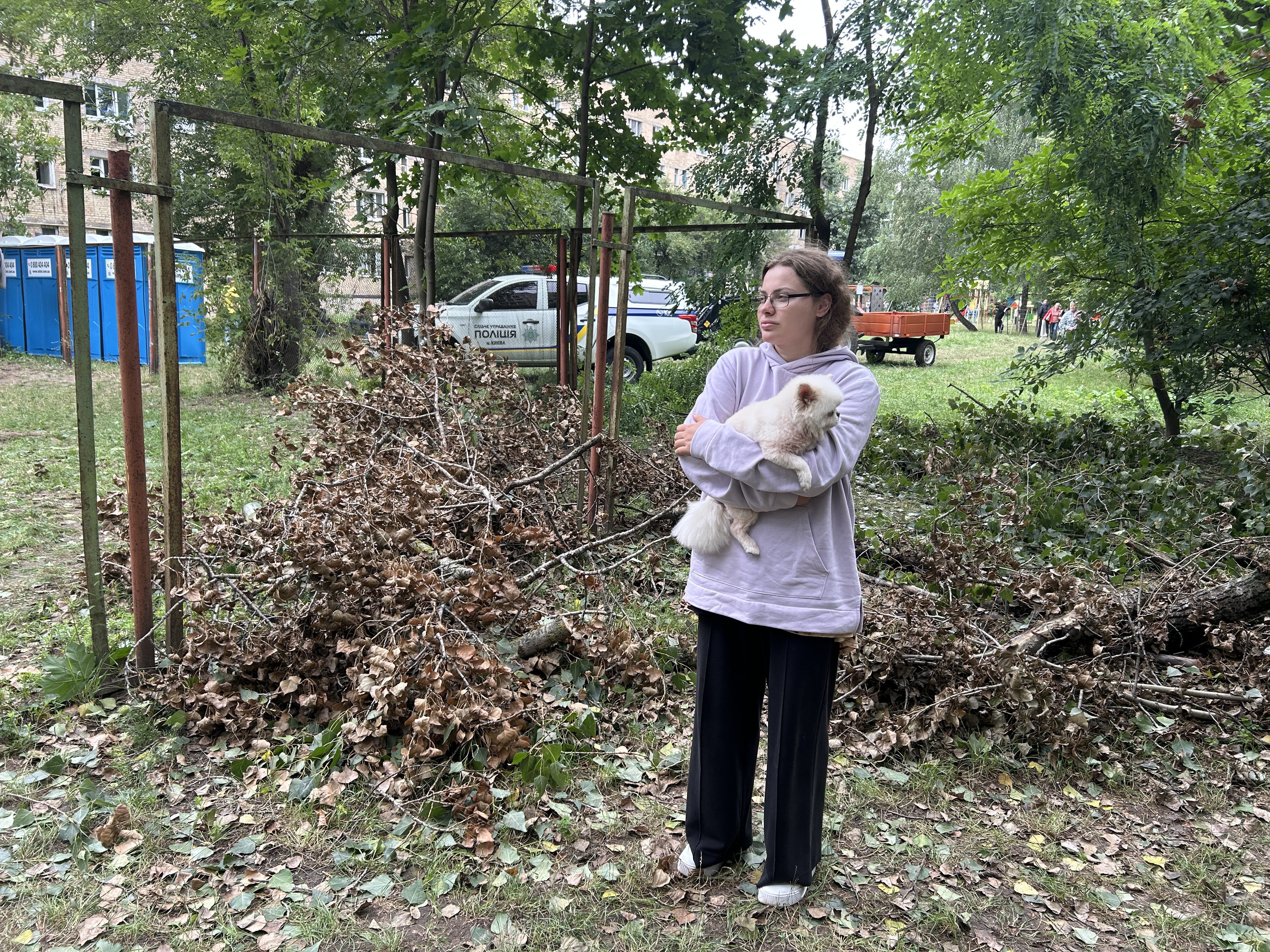
There are dozens of such stories. The level of human suffering per square metre is off the scale. The most harrowing sight is those waiting for news from under the rubble. They won’t speak, they cry, sometimes they scream.
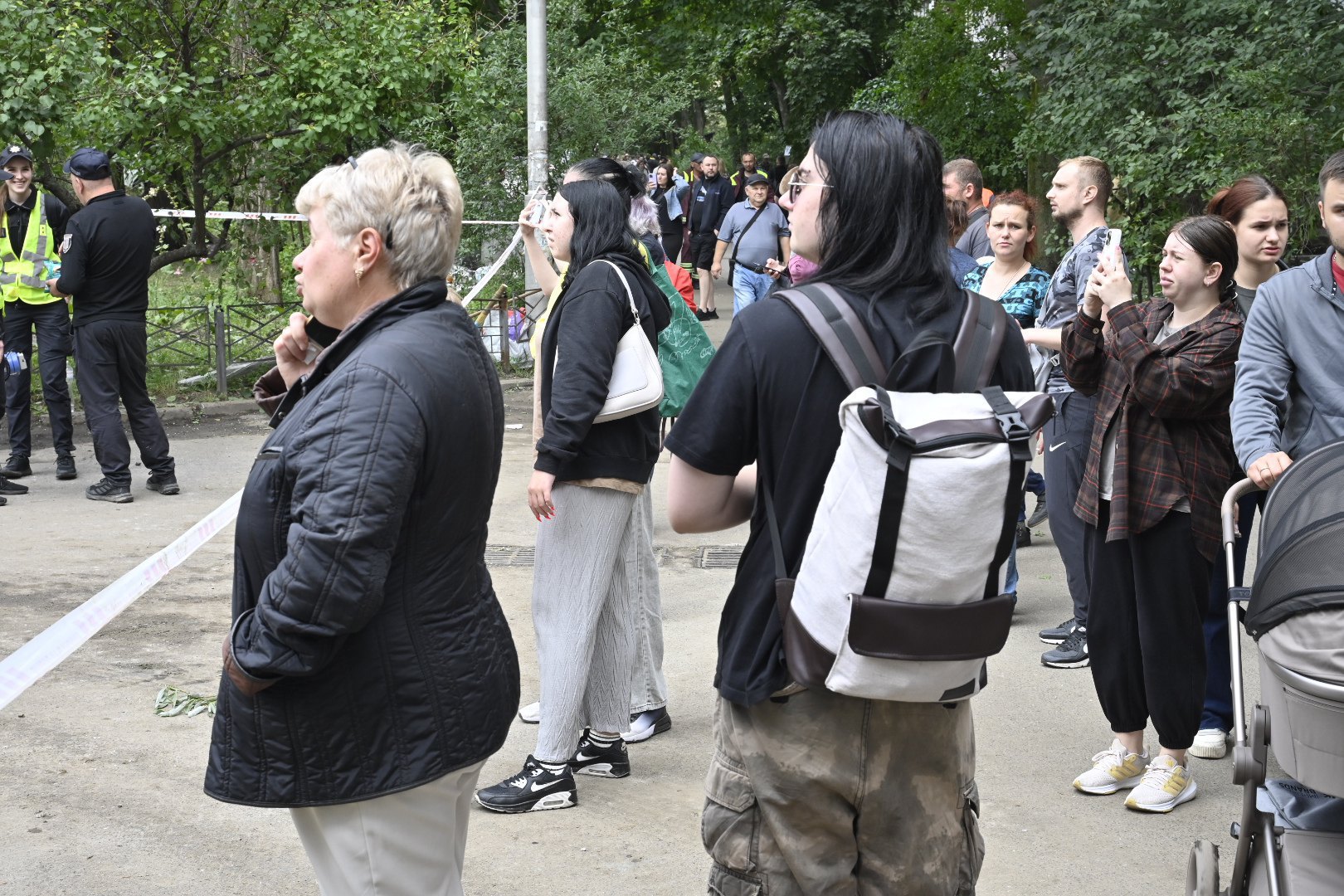
One rescuer, taking a moment to drink some water, tells us they won’t stop until the entire site is cleared.
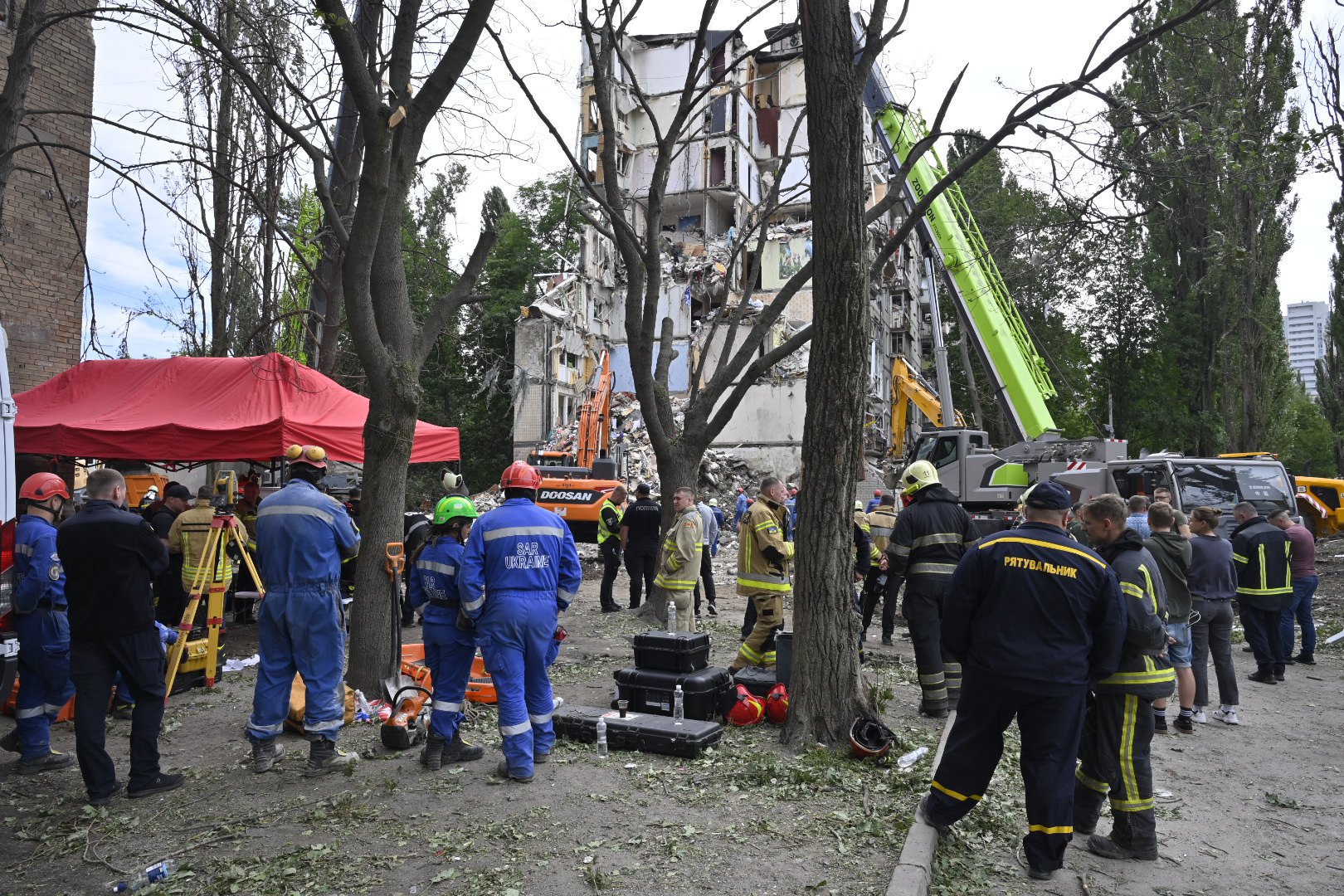
‘There are still people under the rubble. They could be alive. It’s our duty to get everyone out,’ he says quickly before returning to work.
Then I get a text with a link to breaking news. Colleagues have spoken to the girl who jumped from the ninth floor during the Russian strike. Her name is Veronika. She’s in hospital with a broken leg and a chipped tooth. She remembers the explosion and, in the blink of an eye, being on the ground. A miracle.
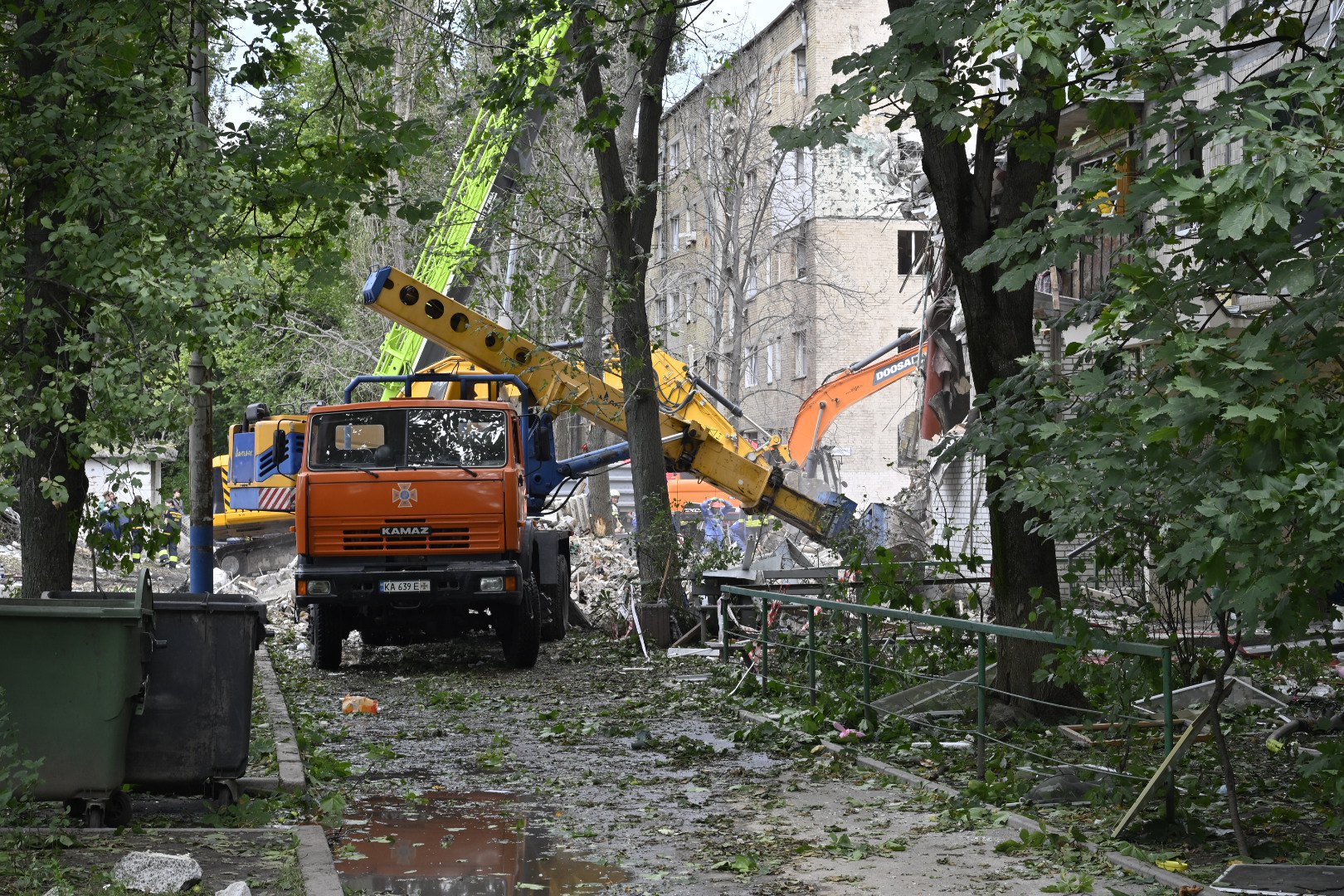
I rush to share the news with everyone I’d spoken to about her. People’s faces change instantly — they light up with joy. Those who were crying in fear now cry tears of relief. News of the girl spreads quickly, giving hope to those still waiting for word from loved ones beneath the debris.
‘Maybe mine are alive too…’ a woman near the cordon whispers into the silence.
Let them be alive.









